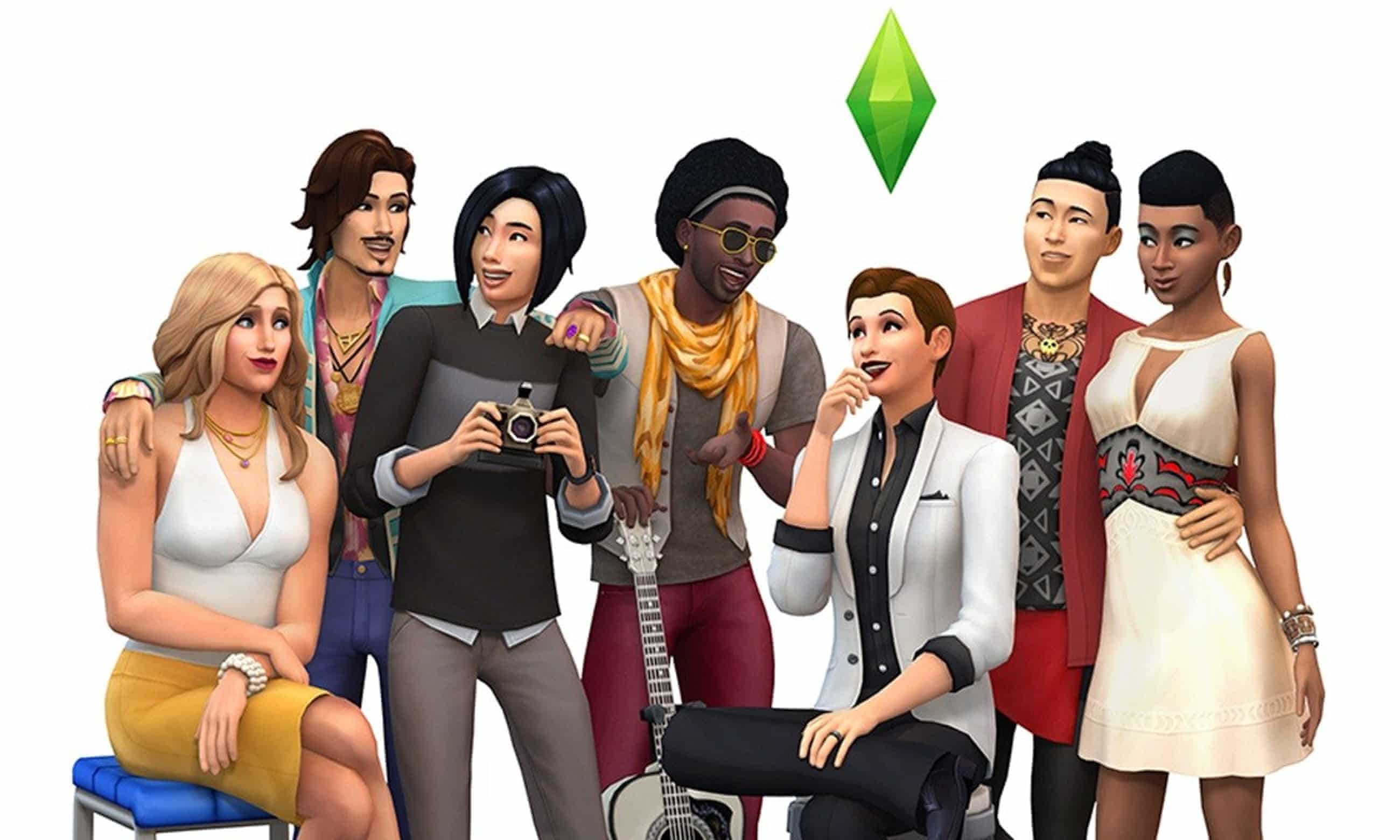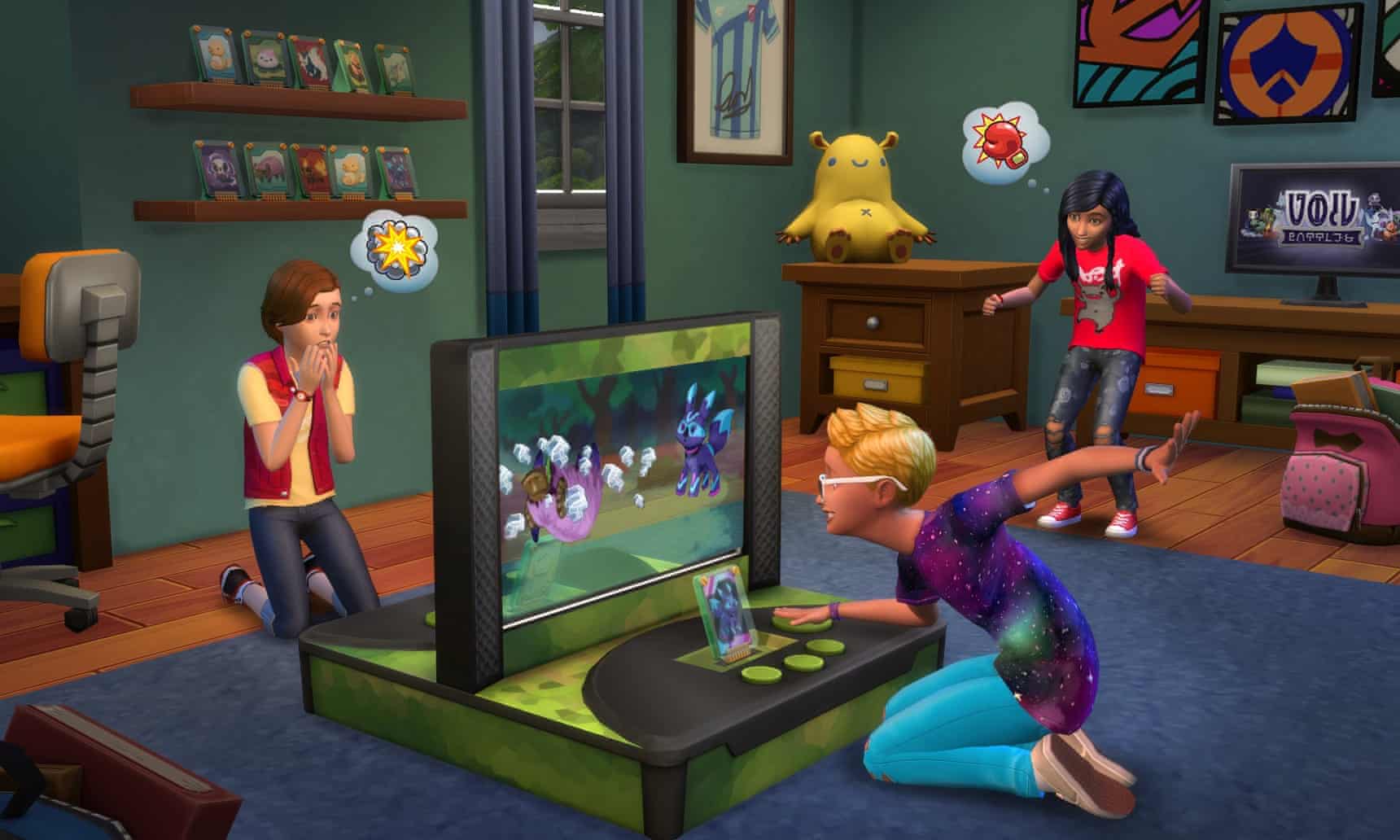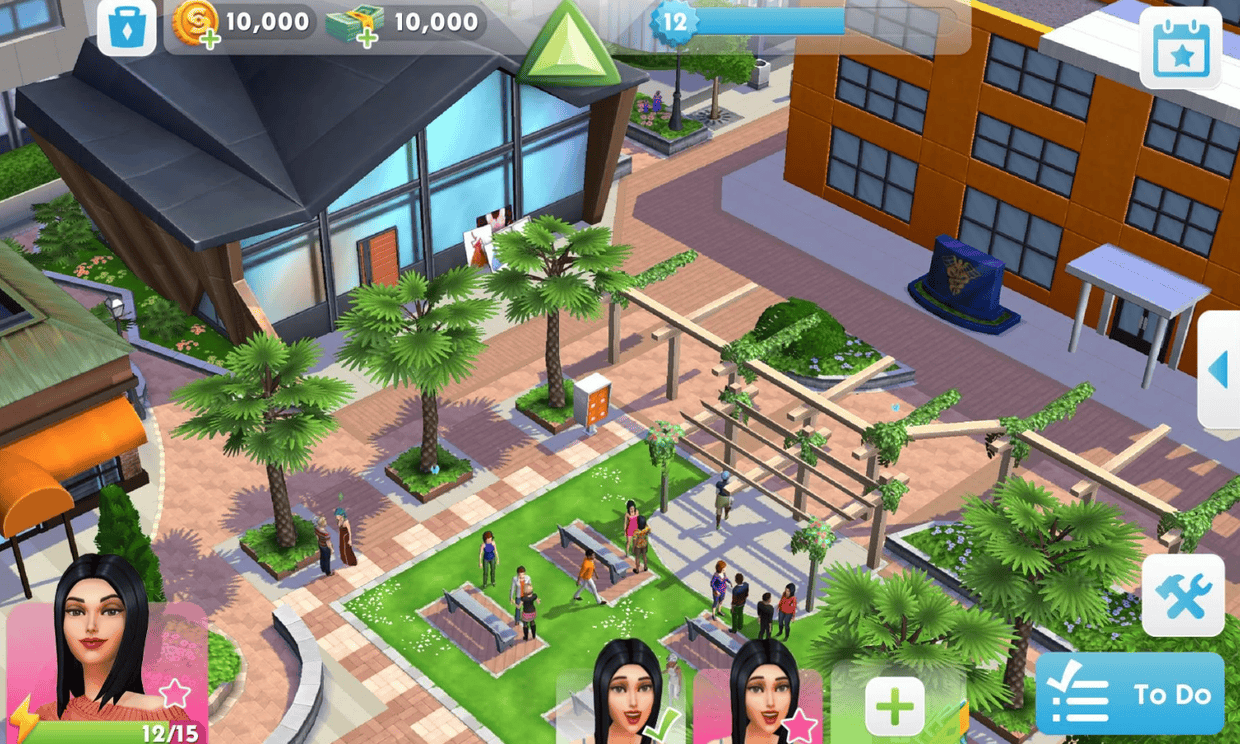
Games
The Sims at 20: two decades of life, love and reorganising the kitchen
In The Sims, if you get a job, buy a house and earn more money then happiness will follow. It’s a beguiling capitalist fantasy
by Keza MacDonaldLike many girls of my generation, I first played The Sims at a sleepover. It was at my friend Hannah’s house; three 11-year-olds huddled in front of her dad’s bulky old computer monitor at midnight, gazing into a miniature house populated by tiny people going about their inexplicably compelling daily business. We took turns sending them to work, changing the wallpaper, and ordering them to put dirty dishes in the dishwasher instead of leaving them to gather flies. We bought them a little telly, a nice couch, a blender, paging covetously through the game’s furniture catalogue. With a thrill, we discovered we could make Sims “smooch” (though we were disappointed to learn that they couldn’t actually bone down – that wouldn’t happen until The Sims 2). Before we knew it, it was 3am.
Almost everyone has played The Sims. With four main instalments, countless add-ons and spin-offs, and more than 200m sales worldwide, equalled perhaps only by Tetris in its universality. One thing creator Will Wright realised very early on was that the game was appealing to a large female audience. Whereas in the past “a large female audience” meant maybe 5% of the user base, with The Sims, women were the majority. A friend’s mother played so much Sims that she forgot to clean the actual house for weeks.

Mortifyingly, some teen pals and I used The Sims 2 to insert ourselves into elaborate Harry Potter and Buffy the Vampire Slayer fanfiction. A university classmate created the cast of Friends, and used them to play out a drama that was definitely better than the final season of the show. My own personal obsession with The Sims was so all-consuming that when The Sims 3 arrived in 2009, I had to cut myself off in case I failed my degree. One of my lecturers, spotting The Sims open on my laptop in class, admitted to the worryingly common virtual crime of drowning his Sims in their own pool by deleting the ladders.
Part of the appeal of video games is control – not just the act of controlling a character’s actions, but the greater control of understanding a set of rules and systems and bending them to your will. The Sims is so enormously compelling because it offers the fantasy of control over life itself, including all the things that are so maddeningly unpredictable in the real world – relationships, careers, family, house renovations. The rules of The Sims essentially state that if you work hard and do everything you’re supposed to do – get a job, buy a house, progress through the ranks to earn more money and buy more stuff – happiness will follow. It’s a beguiling capitalist fantasy – and even if things aren’t going well, you can always type in the “motherlode” cheat code to shower yourself in riches.
In the 20 years since the original Sims arrived to distract us all from homework and housework (with virtual homework and housework), the series has evolved and expanded, its underlying artificial intelligence code becoming ever more sophisticated. Where originally Sims were miniature automatons, later they developed personalities, aspirations and foibles alongside their basic needs for food, money and toilet facilities. They even developed free will: from The Sims 2 onwards you could flip a switch and the simulation would play out without your input, the Sims making decisions about whom to hook up with and how long to spend in the bath, according to their own virtual whims.

Some of my favourite times with The Sims have come when the little people are operating independently of me, sometimes so uncannily that it freaked me out. Once, as a teen, I created a replica of my real-life home to see what would happen, and it generated such an accurate facsimile of our family dynamic – dad yelling at my slobby brother to get off the couch, me arguing with my mum in the kitchen, me writing furiously in a diary late into the night – that I started to wonder if we weren’t all in a video game all of the time. And I wasn’t even a fan of the Simulation Hypothesis. Or high.
New games have sent Sims off to college, seen them celebrate birthdays and engagements and new year parties, introduced pets and tiny houses and mermaids. And have you seen what Sims fans are doing nowadays? A vast, dedicated community of crafters has made hundreds of thousands of new things to adorn Sim dwellings. Some make an actual living building perfect houses or directing Sims soap operas on YouTube. And of course, they’ve made countless explicit sex mods.

The Sims is more than a dolls’ house for the digital generation. In many respects it is a post-literate utopia, powered by love and money. There is no racial prejudice, no gender pay gap. Gay marriage arrived in The Sims years before it did in real life. And as its simulation has become ever more clever, it has let players experiment not simply with home decor and fashions, but with human nature and motivation. Players have used The Sims to explore everything from their own gender identity, to complicated family dynamics, to what would happen if you put all the Greek gods in a house and made them have sex.
I sometimes wonder what The Sims would be like if it were closer to how real life actually worked – if it saddled you with crippling university debt, made you pay extortionate rent on a tiny flat instead of letting you build your dream home, had you chasing after people who’ll never love you back and working for years without earning the promotion you deserve. But a more realistic Sims would be depressing to play, because really, the point of The Sims is to make life’s everyday trials, labours and rituals seem fun and full of possibilities. Has a video game ever had a more valuable and worthwhile aim?